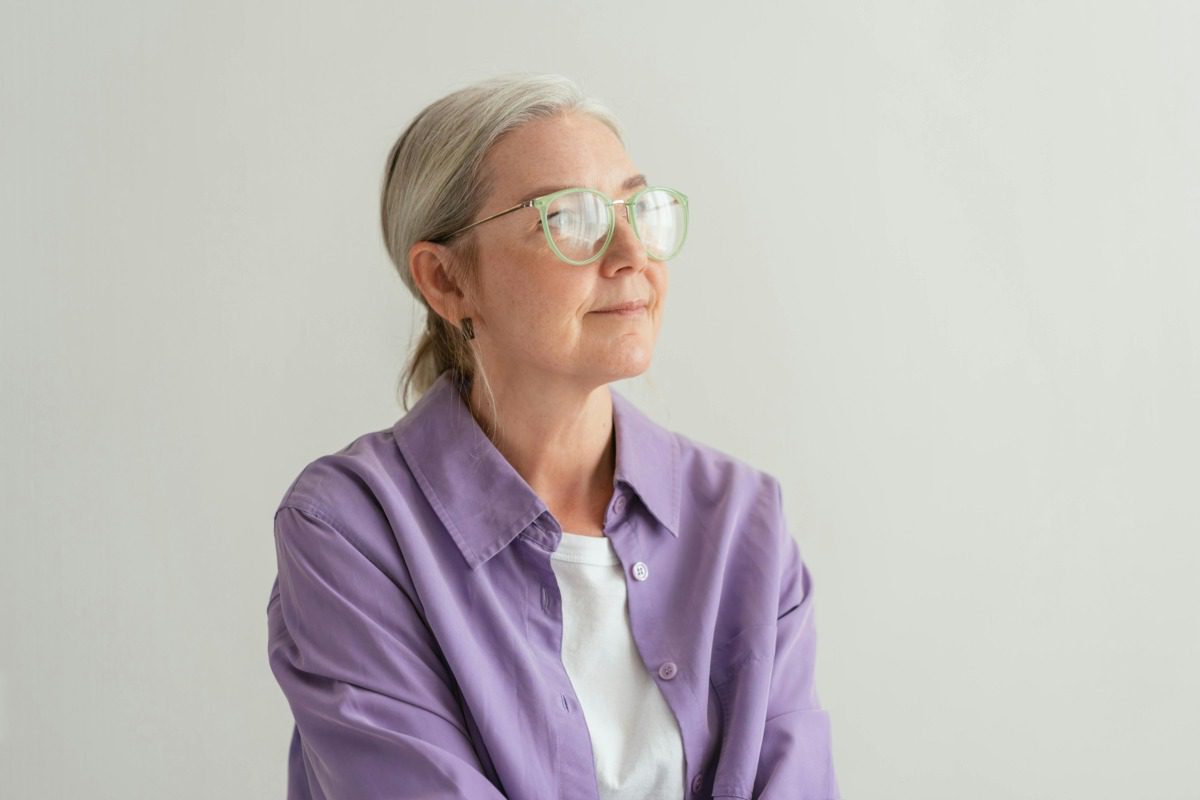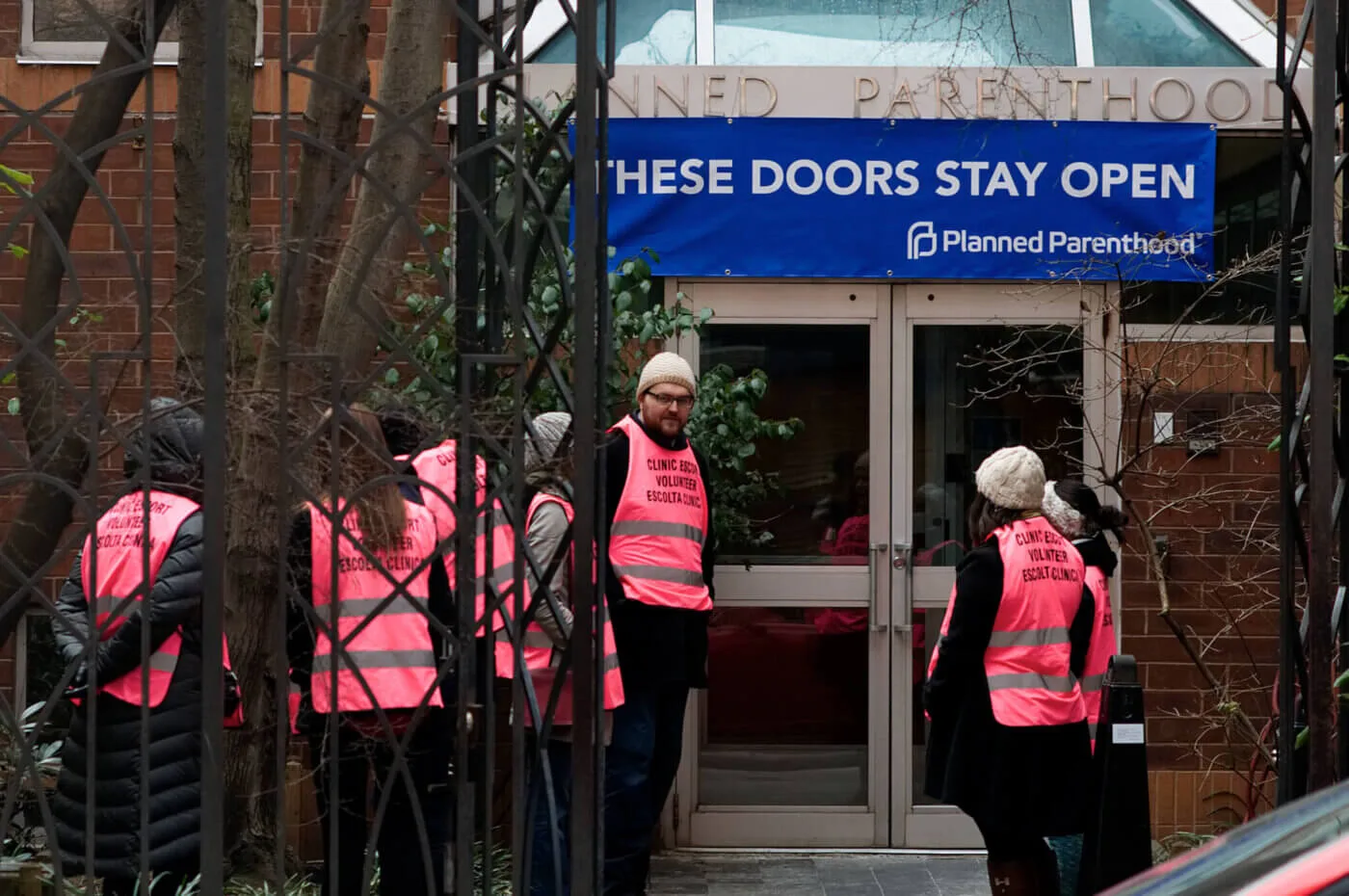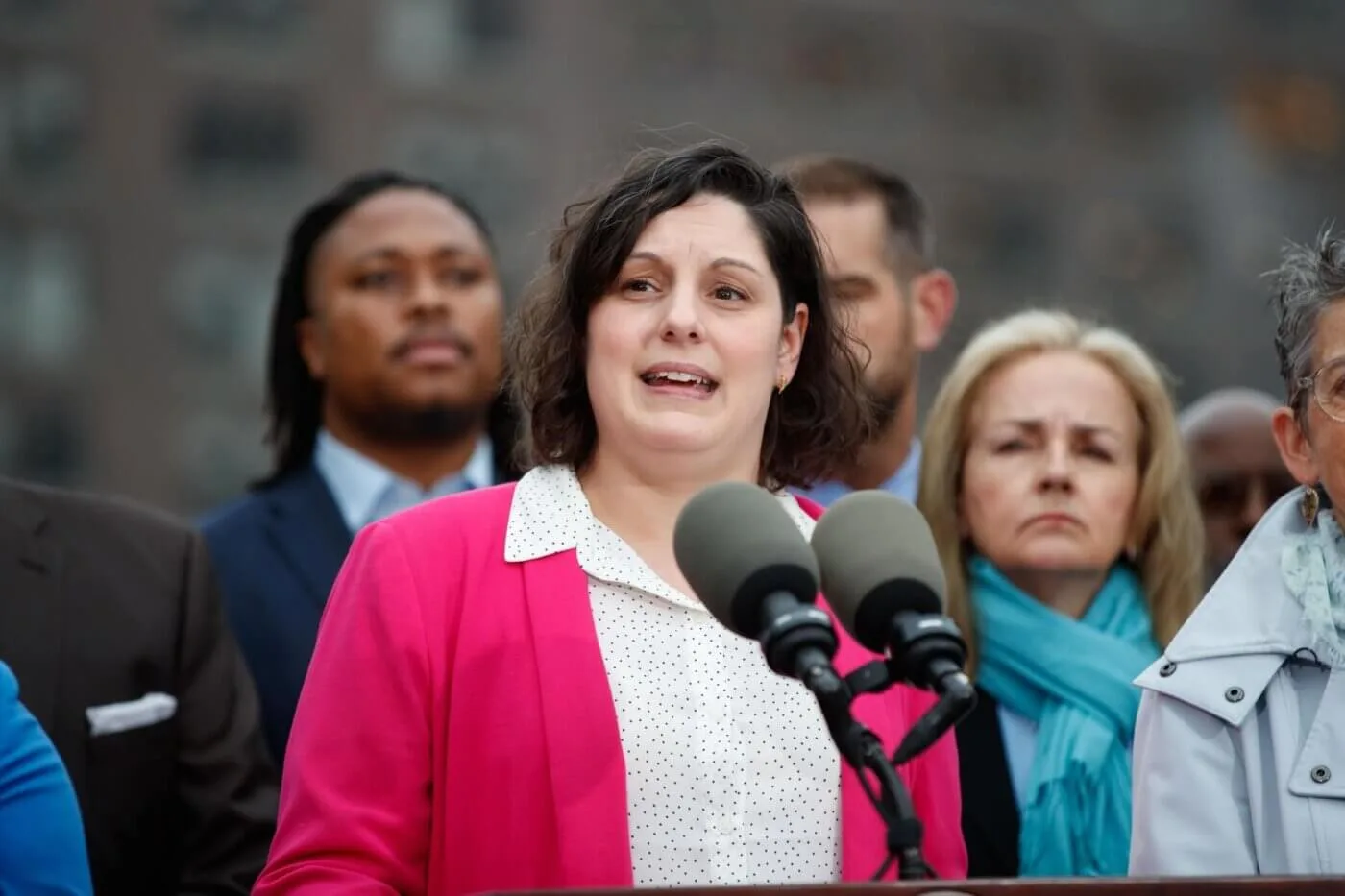
‘Libby’ shares how trauma shaped her advocacy for women to have control over their own bodies—and how ‘family values’ politicians are way off the mark. Photo: Pexels/Stock Image
Libby (not her real name) was just 5 years old when her father began sexually abusing her.
After a late-night fight with her mother, Libby’s dad came into her room, pushed a dresser against the door, and slid into bed next to her.
For the next seven years, Libby endured sexual abuse and incest.
It’s that experience, and the strength she’s since developed, that have transformed this Pennsylvania woman into an advocate for reproductive freedom—including the critical right for women to have control over their own bodies.
During the lead-up to the Nov. 5 presidential election, Libby has been speaking out about reproductive freedom—one of the top issues on the ballot nationwide—because she knows what it’s like to be a person with no control over their own body.
She also brings a unique perspective to light—when Libby listens to Donald Trump, she says, she hears her father.
“I see him and I know him. He’a a carbon copy, the manipulation,” she says of the former president, who is once again the Republican nominee.
Trump “is very traumatic for me,” she says. Like her own father, who never apologized for beating her mother or for his sexual assault, Trump also has never apologized for any of his cruel behavior.
Trump is also deaf to the roughly 65,000 women in 14 abortion-ban states who have been forced to carry babies to term after being raped following the US Supreme Court’s decision to overturn Roe v. Wade in 2022.
Trump offered no words for the families of Amber Thurman and Candi Miller, who both died because they couldn’t get life-saving care under Georgia’s strict abortion ban.
Though traumatized by her childhood abuse, Libby does have words.
She wants voters to know that yes, incest does happen to children and teens today. Even in her own seemingly happy, upper-middle class, Catholic family, it was happening and no one knew. And incest, she points out, has consequences that lead to the absolute necessity of an abortion.
From getting pregnant by an abuser, as did Hadley Duvall—another outspoken abortion advocate, who was impregnated by her stepfather when she was 12—to managing the scars of trauma through future relationships, incest and sexual assault do not end when the abuse stops.
“Once you’ve been traumatized, you can’t make good decisions—and I made poor decisions,” explains Libby, who first became pregnant at age 19 while a sophomore at college.
She and her boyfriend were using contraception. But when it failed, her boyfriend shunned responsibility.
“I wanted him to help me pay for it (an abortion), or to give some kind of support, something even like, ‘Hey, I’m sorry that you’re going through this.’ There was nothing,” she recalls.
Libby had no hesitation about what she needed to do. After being victimized by her father, she knew abortion was her only option. “There was no way—I mean, the thought of having a child at that time…it would’ve destroyed me.”
Fortunately, her mother was fully supportive and helped arrange for Libby’s procedure. And when she began to bleed profusely a couple weeks later, she was able to get the health care she needed.
“I’m really lucky,” she says. “I lived in a time when I could go into an emergency room and it was like this, boom, boom, boom.” She was given a dilation and curettage procedure (often referred to as a D&C) to remove leftover tissue in her uterus. “And I was done, I walked out.”
Now, Libby is advocating for a country where miscarrying women don’t have to bleed out in hospital parking lots until they are close enough to death to be given standard reproductive health care treatment.
“I’m fighting for the country where I can drive into an emergency room, get a D&C, rest for a few days, and go back to college. That’s the country that I want for my kids, not where women are running scared,” she explains.
Libby knew the health care system was there for her again a couple years later, when she and her loving, supportive partner (who would later become her husband) accidentally became pregnant. They both knew they were not ready to be parents.
“We were on a roll in school, we had a plan…and our grades were doing well, we had a job, all that kind of stuff,” Libby says. “I really did not want to get pregnant.”
They found a clinic that supported their decision and made the process “uneventful,” Libby says.
She added that she cherished the freedom she finally gained over her body, which allowed her to end unwanted pregnancies. Today, she and her husband are the parents of two kids, and Libby is doing what she can as an advocate to help ensure that abortion is an option for her children, for other women, and certainly for women who have been traumatized by rape and incest.
“I don’t want to live in a country where I’m telling my kids, ‘Don’t live in a red state,’” she says. “What are we saying about our country? It’s not fair, it’s not safe.”
She wants other Pennsylvanians to know, as they are heading to the polls and deciding who to vote for, that there are many reasons women need abortions. And that abortions are part of necessary reproductive and mental health care.
But they also represent something much bigger than just the right to a medical procedure.
“The issue at hand is reproductive rights and giving a person not just a right to choice, but it’s a right to their life,” Libby says. “Abortion isn’t just about health care. Abortion is about financial choices, education choices, housing, safety, security. It’s a life decision. So when we talk about being ‘pro life’ or not, this is about us and our lives.”
Furthermore, she says she takes exception to the idea that banning abortion has anything to do with “family values.”
“I’m big on family and this is disgusting. It’s not family values. People are f##king dying. The maternal fatality rate in Texas alone is up 56%.”
Libby says she gets angry thinking about male politicians assuming they know what’s best as a rule for all women.
“How these politicians and these lawmakers can be making laws around abortion, and around reproductive rights, when it goes from Caitlin’s story and Amber’s story to my story, and it’s so vast in-between—how the hell are you going to regulate abortion with your white privileged male perspective?
“You don’t know what it’s like to give birth, to go through pregnancy, how it changes your life. Let alone incest survivors, rape survivors. You cannot legislate this. It’s between a doctor and a patient, and that’s it.”

From clinics to crisis: Pennsylvania women will feel the pain of Medicaid cuts
In Pennsylvania, about one in every five women of reproductive age is enrolled in Medicaid. Dozens of family planning clinics throughout the state...

House GOP fast-tracks budget bill that would cut off Medicaid funding to Planned Parenthood
The budget package proposes steep health care cuts—and includes a new push to block patients from accessing reproductive care. In a 30-24 party-line...

State lawmaker wants to end mandatory counseling and waiting period for abortions in PA
A proposed bill from Democratic lawmakers would remove hurdles to getting an abortion in the state by taking away the currently mandated counseling...

Helping patients get in the door: The role of clinic escorts and the push for stronger legal protections in PA
At reproductive health care clinics across Pennsylvania, patient escorts are the first line of defense for abortion rights. These volunteers put...

Thousands of Pennsylvanians just had their reproductive health care halted by President Trump
Pennsylvania will lose a majority of its Title X funding—the only federal family planning program in the country. Planned Parenthood clinics, county...





